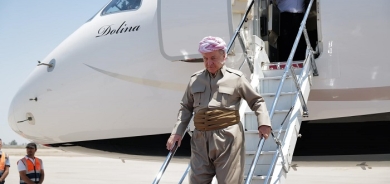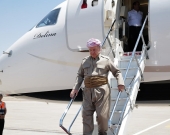Egypt’s army hands legislative power to parliament: Cabinet

“Field Marshal Hussein Tantawi, the head of the Supreme Council of the Armed Forces, has announced in a letter to the people’s assembly the transfer of legislative power to the assembly,” the cabinet said on its Facebook page.
The lower house of parliament convened for the first time on Monday since it was dissolved last year following a popular uprising that forced Mubarak to resign after 30 years in power.
A marathon parliamentary election, which ended just days ago, saw Egypt’s two main Islamist parties catapulted to the centre stage of politics, having clinched nearly three quarters of the 498 seats.
The ruling military council has repeatedly pointed to the landmark elections as proof of its intention to cede power to civilian rule.
In their first act, newly elected deputies voted in Saad al-Katatni, leading member of the powerful Muslim Brotherhood, as the new speaker of parliament.
Katatni won 399 votes out of 496 in the first session of the lower assembly since it was dissolved following a popular uprising that ousted veteran president Hosni Mubarak.
With almost half the seats in the assembly, the Muslim Brotherhood is promising to cooperate with the military generals in their transition to civilian rule.
Thousands of pro-democracy activists who fear a deal between the Islamists and the generals to carve up power cried “down with the military government” behind a police cordon near the parliament building.
A credible chamber would help Egypt’s new political class prove it can govern and the Brotherhood has said it wants to be inclusive and ensure all voices in Egypt are heard.
The session began in somber mood as parliament’s acting speaker, automatically chosen as its oldest member, invited deputies to hold a silent prayer in memory of the hundreds who died in the uprising that ousted Mubarak in February last year.
“The blood of the martyrs is what brought this day,” said speaker, Mahmoud al-Saqa, 81. Some deputies wore yellow sashes in protest at the army’s policy to try thousands of civilians in military courts.
The session became more raucous when one Islamist member, Mamdouh Ismail, read the oath that vows allegiance to the nation and its laws but added his own words “so long as it does not oppose God’s law,” prompting the speaker to tell him to repeat it without his addition.
An angry exchange erupted later as deputies worked on their first task of electing a speaker.
One candidate opposing Brotherhood nominee Mohamed Saad al-Katatni sought to introduce himself to the chamber, a move the Brotherhood opposed in a swift vote. Katatni, secretary-general of the Brotherhood’s Freedom and Justice Party (FJP), was then appointed.
Opponents of the Brotherhood said its grip on parliament was similar to that enjoyed by Mubarak’s National Democratic Party (NDP), which was handed large parliamentary majorities in widely discredited elections.
But unlike the NDP, the Brotherhood does not have an outright majority and must form alliances.
Hossam Hamalawy, a leftist activist, said: “I do not have any high expectations for this parliament because of the composition of the political forces inside ... It seems they’re going to reinvent the old regime with very few cosmetic changes.”
Protests
“This parliament is defunct and a fiasco. How can we have a parliament with an old constitution?” said protester Rasha Adel outside parliament, who wants an immediate transfer of power to civilians.
The generals will remain in charge until after a presidential election in June when they have promised to hand over power. Many Egyptians suspect the army may seek to retain influence behind the scenes after that.
“Today we resume the revolution. We have wasted a year. We have work to do,” said Kamal Abu Etta, a prominent labor union activist and member of the non-religious Karama party.
The Brotherhood’s rise marks a sea change from Mubarak’s era when it was officially banned but won some seats by running candidates as independents.
It is unclear whether it will form a single bloc in parliament, which will have a role in drafting the new constitution by picking the 100-strong assembly that will draw up the document.
“We will cooperate with everyone: with the political forces inside and outside parliament, with the interim government and with the military council until we reach safety heralded by a presidential election,” said Essam el-Erian, deputy FJP head.
Liberals were pushed into third place behind the Freedom and Justice Party and the ultraconservative Islamist Salafis led by the al-Nour party, the surprise runners-up. The FJP says it controls almost half the 498 elected seats, with a few re-runs to be held.
Monday’s session marked the revival of an assembly that in the early 20th century was a vibrant forum for the nation’s aspirations and filled with deputies who vied with the monarch and Egypt’s British overlords.
Parliament’s independent voice was extinguished after a 1952 coup that toppled the king and swept military-backed autocrats to power. Mubarak was a former air force commander and the ruling military council is now led by the man who was Mubarak’s defense minister for 20 years, Mohamed Hussein Tantawi.
Mubarak’s party routinely won sweeping majorities. The best performance by the Brotherhood was when it secured 20 percent of seats in the 2005 election. In 2010, almost all the opposition was all but squeezed out. The Brotherhood and other opponents boycotted what they saw as a blatantly rigged poll.
Mubarak, 83, is now on trial for his role in the deaths of 850 people during the uprising. Scores of people have been killed in sporadic violence since then, including demonstrations against army rule in November and December.
(Reuters)












